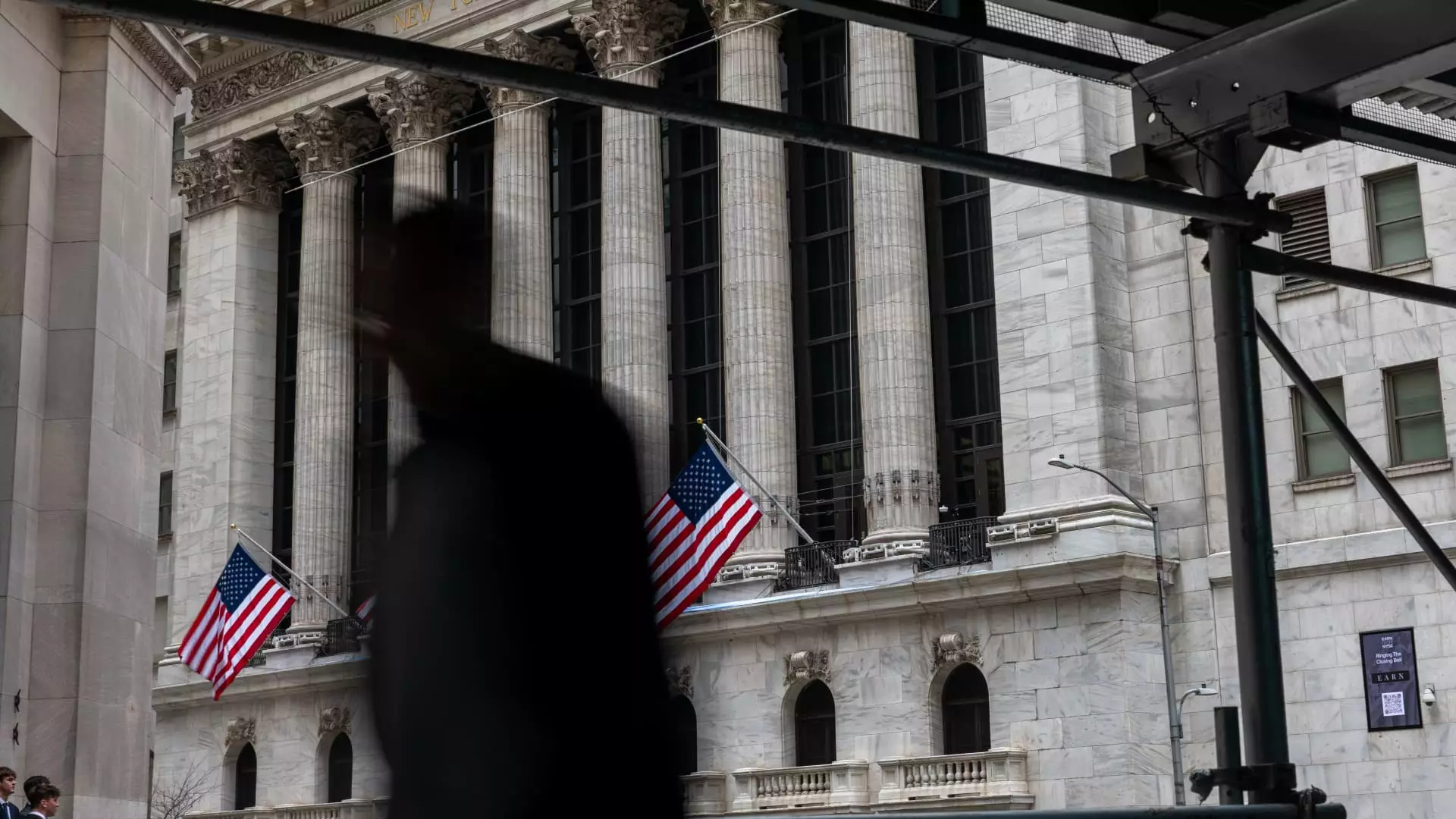In the ongoing saga of U.S.-China trade relations, the strategy employed by the Chinese government appears to have shifted dramatically. Evercore ISI’s recent analysis indicates that China’s response to U.S. tariffs is less about robust long-term policymaking and more about immediate tactical aggression. The timing of Beijing’s announcements, particularly its decision to impose a hefty 34% tariff on American goods, raises eyebrows. Why this sudden action, especially when U.S. markets were bracing for another turbulent trading day? It seems more like an attempt to rattle U.S. financial confidence than a well-reasoned economic strategy. This shock-and-awe approach could reveal severe flaws in China’s long-term planning and economic resilience.
The Ripple Effect on American Markets
Undoubtedly, the immediate fallout of China’s announcements was felt on Wall Street. The Dow Jones plummeted by over 1,400 points in a day, signaling heightened instability and investor apprehension. Such volatility can be devastating, particularly for small investors who lack the security and liquidity of major corporations. In a cycle of retaliatory tariffs, both nations seem to be gambling with their economic futures rather than seeking constructive dialogue. As the S&P 500 and Nasdaq both suffered significant losses, one must wonder if China’s attack on U.S. markets was indeed strategic or simply desperate.
It isn’t just the equity markets that feel this strain; U.S. workers and consumers are also grappling with rising prices and job instability. The tariffs act as a tax on Americans, ultimately leading to higher costs for everyday goods. As China places blame on the “inconsistency” of U.S. tariffs while simultaneously crippling its domestic tech industry through retaliatory measures, it becomes evident that the Chinese leadership’s approach lacks foresight.
Analyzing China’s Long-Term Vision
China’s move to retaliate with tariffs raises critical questions about its long-term economic vision. Historically, Beijing has meticulously calculated its responses, timing them to maximize impact while minimizing self-inflicted harm. However, the current escalation appears reckless and hasty. By targeting U.S. imports vigorously, Beijing risks undermining its own economic stability—an outcome that could reverberate far beyond Chinese borders.
It is essential to consider how intertwined the Chinese economy is with American technology and goods. Beijing’s reliance on U.S. tech imports is a glaring vulnerability in its grand strategy. If the Chinese government believes that a harsh tariff response will coerce the U.S. into negotiations, they may be mistaken. Such a brazen tactic could instead stiffen the resolve of American officials, leading to a more combative stand and prolonging the economic standoff.
The Stakes of Negotiation
The most puzzling aspect of this tariff war is the consequences for future negotiations. Neo Wang from Evercore ISI poses a reasonable inquiry about China’s motivation: can maneuvering aggressively truly lead to fruitful discussions? If Beijing’s strategy is to goad the U.S. into coming to the table, it may be overlooking the typically American response to perceived threats: unyielding fortitude. The risk of such a heavy-handed approach is that it may deepen divides rather than bridge them.
Moreover, if the Chinese government is betting that their tough stance will compel President Trump to reconsider additional levies, they might be making a grave miscalculation. Such economic posturing could provoke even stronger responses, prompting the U.S. to dig in its heels and take an even more hardline approach to trade policies.
In a high-stakes game of tariffs, each maneuver counts, and the implications are extensive. China’s sudden declaration of retaliatory tariffs appears to bear the hallmarks of a miscalculated gamble. With financial markets shaken, domestic consequences lurking, and the potential for negotiation stunted, it’s clear that the Chinese government may need to rethink its strategies. This isn’t just a battle of tariffs but a war of wills, with high risks associated with every reckless strike. The future of economic stability may depend on whether cooler heads can prevail amidst the growing chaos.


Leave a Reply